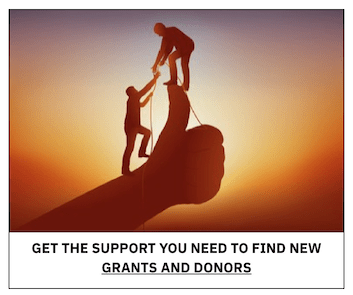
Deadline: 16-Dec-2022
Submit applications for Strengthening Modeling and Analytics Capacity and Ecosystem for Women’s Health for innovative approaches to modeling of women’s health issues or of broader health topics that incorporate a gender lens.
The Challenge
- They are looking for projects with a 1-to-3-year timeline that will achieve at least one of the objectives:
- Increase the number of trained modelers, especially women with gender expertise based in low-income and middle-income countries
- Achieve a better understanding of issues that disproportionately affect women through modeling
- Improve engagement with modeling approaches to support strategic planning and/or evaluation work
- Ideally, proposals should also:
- Bring together discrete modeling units across low-income and middle-income countries to share expertise
- Enable South-South data-centered collaborations, knowledge transfer, and build on & strengthen existing initiatives and ecosystems
- Foster innovation with data in the interest of their respective local communities and achieving equality in access to health care
- Improve data collection, sharing, governance, regulatory compliance, and analysis processes to enable data-centered and gender aware public health research and interventions
- Explore and improve how to build and strengthen the interface of modeling with policy engagement leading to increased adoption of insights to yield impact.
Funding Information
- The funding level for the Building Data Modeling Capacity for Gender Equality Project is a grant of up to $500,000 USD, provided to the organization, with a term of up to 1-to-3-years. Application budgets should be commensurate with the scope of work proposed.
Eligibility Criteria
- Collaborative proposals that are led by investigators in low-income and middle-income countries (LMICs) – they particularly encourage applications from women-led organizations and applications involving projects led by women
- Proposals that have the potential to have impact on addressing women’s health issues within the proposed budget and timeframe of 1-to-3-years
- Proposals that are gender intentional or transformative:
- Gender intentional investments will, through novel modeling and analytical approaches, increase understanding of impact that gender gaps/barriers have across relevant global health fields
- Gender transformative investments will, through novel modeling and analytical approaches, increase the understanding of empowerment on reduction of gender gaps/barriers across relevant global health fields
- Should demonstrate that their approach will increase knowledge and understanding of gender barriers in modeling OR Should display how their methodologies would show impact alleviating a known gender gap/issue would have across relevant global health fields
- Proposals should also highlight existing expertise around gender and modeling and how it will contribute to both novel methods and expanding the ecosystem
- Proposals that demonstrate enhancement of the data value chain for gender intentional modelling
- Proposals that have timely access to necessary data. Focus on improving gender modeling capacity in women’s health in LMICs
- Proposals that articulate how the project will lead to impact in the near-term and how those benefits will be sustained past the lifetime of the project
- Proposals that demonstrate engagement with local and/or regional decision makers
- Proposals that are driven by a shared commitment to open science, data sharing, and building collaboration and analysis infrastructure to enable discoveries that will benefit people everywhere
Note: Global partners may be included. However, priority will be given to proposals that demonstrate at least 80% of the funding is going to LMIC institutions and where the PI is a part of an LMIC institution.
Ineligible
- They will not consider funding for proposals that:
- Aim to collect and generate new data through this funding
- Are not gender intentional
- Are not collaborative
- Do not focus on women’s health or incorporate a gender lens into broader health topics
- Do not engage local and/or regional decision-makers or do not have a plan to do so
- Do not demonstrate that the work proposed will be led and undertaken by investigators and scientists at institutions based in LMIC
- Do not have timely access to necessary data
- Do not demonstrate a pathway to decision making that results in sustainable impact on gender equity and women’s health issues
- Do not demonstrate a clear commitment to open science and making their findings, processes and/or tools developed accessible and reusable.
For more information, visit https://gcgh.grandchallenges.org/challenge/strengthening-modeling-and-analytics-capacity-and-ecosystem-womens-health
